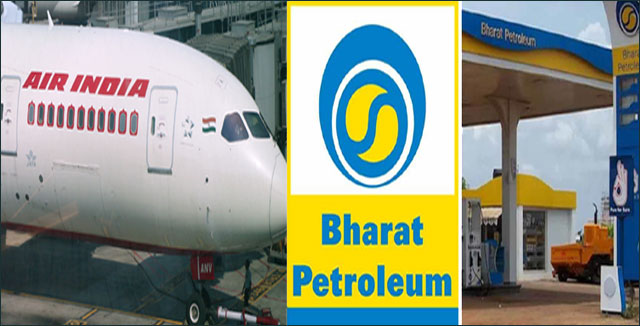New Delhi: Buyers of loss-making airline Air India and oil firm Bharat Petroleum Corporation Ltd (BPCL) will not get a free hand to shed excess workforce as the government will build in certain protection to employees in the share sale agreement, Department of Investment and Public Asset Management (DIPAM) secretary Tuhin Kanta Pandey said Monday.
Public sector companies often have more people on rolls than their private sector counterparts and companies wanting to take them over would likely right-size them to remove inefficiencies.
Pande said the government will follow a two-stage bidding process for selling its entire holding in Air India and BPCL.
First preliminary interest from potential bidders will be invited, followed by them being given access of data room on the companies for due diligence. In the second stage, price bids will be invited.
While in the case of Air India, the expression of interest (EoI) has been invited by March 17, an offer seeking the same for BPCL is likely to be floated in the next few days.
Asked if the bidders will get a free hand to right-size the companies after the acquisition, Pandey said, “There will be certain protection to employees and there will be other conditionalities and this will be listed out in the share purchase agreement (SPA).” He however, did not give details of the conditionalities. An SPA will be signed with the acquirer who offers the highest bid for buying out government stake.
The government is selling its entire 100 per cent stake in Air India but wants effective control to stay with Indian nationals. The airline, which started as a Tata Airlines in 1932 and was later acquired by the government, has not made profits since 2007. It has a total debt of Rs 60,074 crore, of which bidder has to takeover Rs 23,286.5 crore.
In the case of BPCL, the government is selling its entire 53.29 per cent stake in the company that will give buyers ready access to 14 per cent of India’s oil refining capacity and about one-fifth of the fuel market share in the world’s fastest-growing energy market.
“There is a two-stage process. There will be EoI and request for proposal or RFP (in the first stage) and due diligence-cum-bidding stage (in the second),” Pandey said. “After the bidding stage, the highest bidder (will be identified). The highest bidder meeting the reserve price will sign the SPA,” he added.
PTI

